Effective Floor Drain Maintenance Tips to Prevent Backups

What You Will Learn:
Floor drain maintenance tips to prevent clogs, sewer odors, and costly flooding.
How to use tools like a drain auger, plunger, and baking soda solution for effective cleaning.
When to hire a professional plumber for your plumbing system to avoid long-term issues.
- Reading Time: 5 minutes
Understanding Floor Drains
Floor drains are an integral part of your home’s drainage system, directing excess water and waste to a municipal storm drain or sewer system. These drains are essential in areas prone to water exposure, such as the basement floor, garages, laundry rooms, and spaces near washing machines or sump pumps. However, clogged floor drains can lead to sewer gases infiltrating your home and causing unpleasant odors. Proper floor drain maintenance ensures these issues are addressed before they become serious.
Floor Drain Maintenance Tips
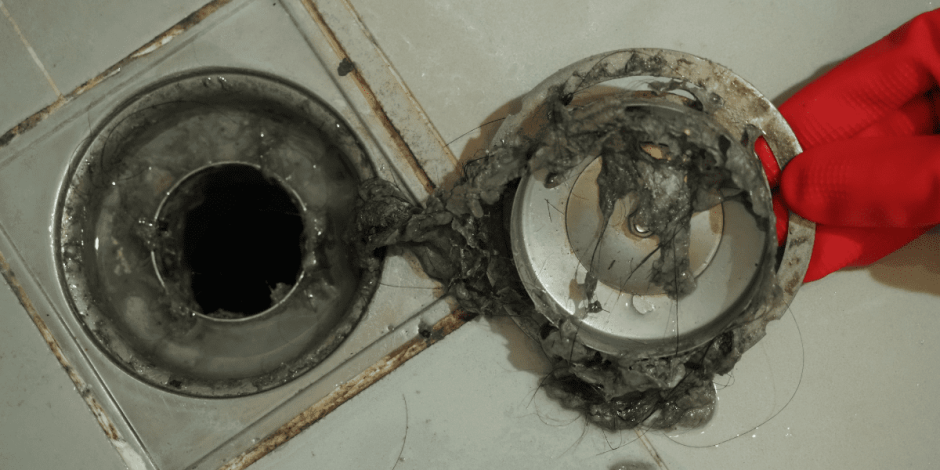
Routine floor drain maintenance can help avoid flooding, clogs, and plumbing problems. Regularly inspect floor drains and remove any visible debris to prevent blockages. Use a drain auger or plumber’s snake to clear deeper clogs in the drain line.
For maintenance, pour baking soda followed by vinegar to break down grease and other debris that accumulate over time. This will help maintain smooth water flow. Regularly filling the drain traps with water can also help prevent sewer odors from entering your home. You can also consider installing a floor drain trap to stop sewer gases and sewer odors from entering your living space.
Cleaning and Clearing Floor Drains
Address clogs early to avoid plumbing issues. If you notice slow drainage, try a few strong pumps with a plunger to dislodge minor clogs. For more stubborn blockages, use a drain auger to reach deeper into the drain line.
If these DIY methods don’t work, it’s time to call a professional plumber who has the tools and experience to resolve more complicated problems. Floor drain maintenance also includes flushing the drain line regularly with clean water to prevent buildup.
Preventing Backups and Flooding
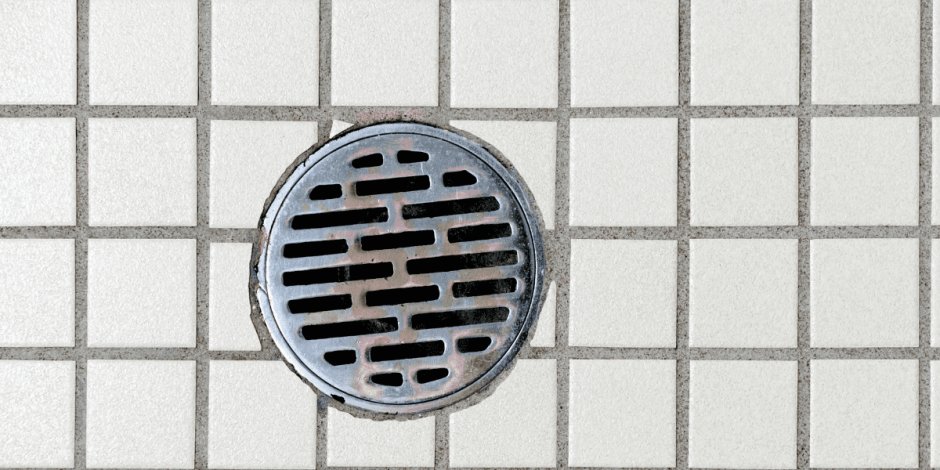
Clogged floor drains are a common cause of indoor flooding and property damage. Install a check valve to prevent sewage from backing into your home during heavy rains or drainage overloads. Keep the area around your floor drain clear of debris to allow water to flow freely. Additionally, installing a sump pump can provide an extra layer of protection, especially in basements and areas prone to water accumulation.
Best Practices for Floor Drain Maintenance
Maintaining your floor drains is essential for a healthy plumbing system. Keep the cleanout plug properly secured to ensure the system functions smoothly. Regularly inspect both indoor floor drains and outdoor floor drains to prevent issues before they arise. A well-maintained drainage system ensures that homeowners avoid unexpected clogs and flooding. Adding a floor drain trap can further prevent harmful sewer gases from seeping into your home.
Using a Plunger for Effective Drain Cleaning
At the first sign of a clogged drain, place a plunger over the drain and give it a few strong pumps. This technique is effective for dislodging minor clogs caused by dirt or small objects. If the blockage persists, flush the drain with boiling water to break up grease and other debris. It’s also helpful to run water through all your drains regularly to prevent any buildup.
When to Call a Professional Plumber
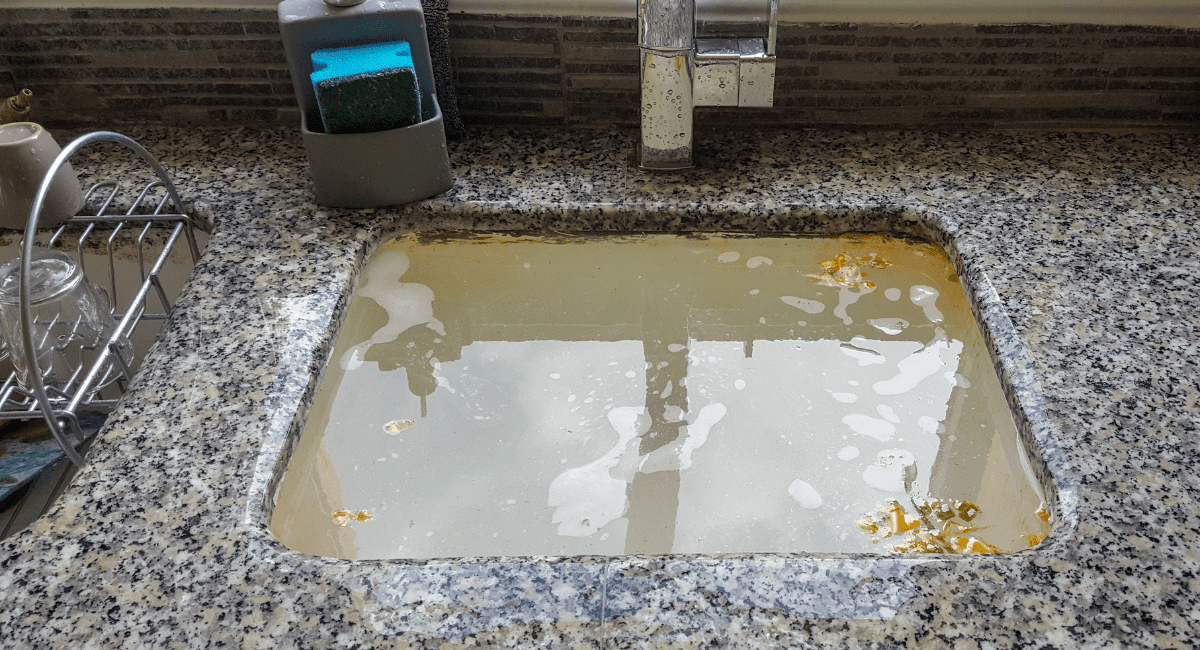
If your floor drains are frequently clogged or you experience recurrent sewer odors and flooding, it’s time to bring in a professional plumber. Some clogs are caused by deeper issues, such as tree roots invading the drain line. A plumbing contractor will have the expertise to diagnose the problem and recommend the best solution. Regular plumbing work by professionals ensures that your home’s drainage system stays in optimal condition.
Natural Cleaning Methods for Floor Drains
You can maintain your floor drains with simple, eco-friendly solutions. Pouring baking soda followed by vinegar creates a chemical reaction that helps break down grease and grime. For added effect, flush the drain with boiling water. This natural method helps prevent the buildup of clogs and keeps your plumbing system functioning properly.
Avoid Common Floor Drain Mistakes
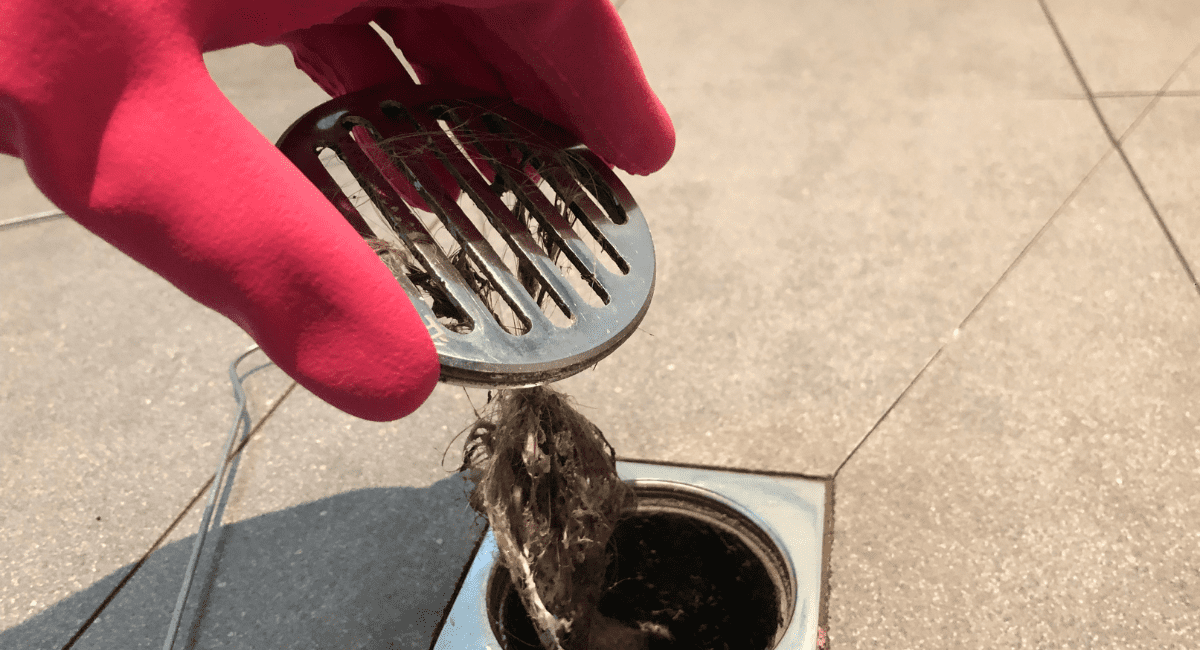
Many homeowners forget to perform regular maintenance on their floor drains, leading to avoidable issues like clogs and sewer gases. Avoid pouring grease, dirt, or other debris down the drain, as these materials often cause blockages. Ensure that the cleanout plug is intact to prevent sewer gas leaks. Routine inspections can help you identify issues early, saving you from costly repairs in the future.
The Role of Floor Drains in the Home’s Plumbing System
Floor drains play a critical role in your home’s drainage system by channeling water from areas like basements, laundry rooms, and kitchen sinks into the sewer system. They also act as a safeguard against flooding during heavy rainfall. Well-maintained floor drains ensure that your pipes, toilets, and sinks remain functional and free of clogs. Taking proactive steps to clean and inspect these drains will help avoid disruptions in your daily life.
Prevent Clogged Drains and Sewer Odors with Expert Floor Drain Maintenance from Draingo Plumbing
By following these floor drain maintenance tips, you can prevent clogged drains, sewer odors, and costly plumbing problems. Whether you need routine drain maintenance or assistance with a clogged floor drain, Draingo Plumbing is here to help. If you encounter persistent clogs or flooding, don’t hesitate to contact our professional plumbers. Regular maintenance will ensure that your home’s drainage system runs smoothly, protecting your property from further damage and giving you peace of mind.
Additional Resources
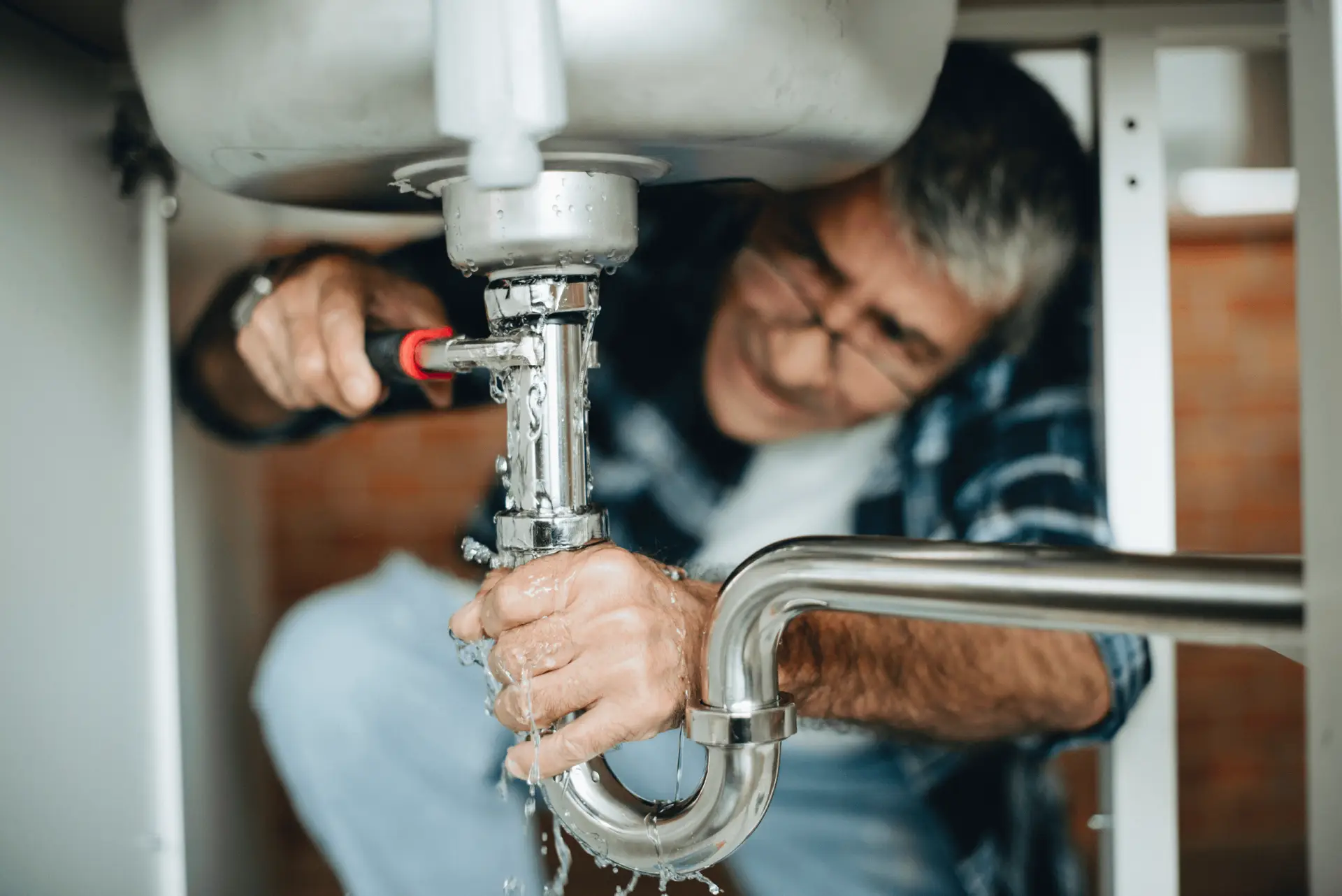
Why Hiring Professional Birmingham Plumbing Services Actually Saves You Money
You come home after a long day, toss your bag on the counter, and spot a small drip under the sink. It looks harmless, so you grab a wrench and give it a quick fix. Problem solved or so you think. Two days later, that same “tiny leak” turns into a puddle soaking through your cabinet floor. Suddenly, the money you thought you saved is going straight into repairs.
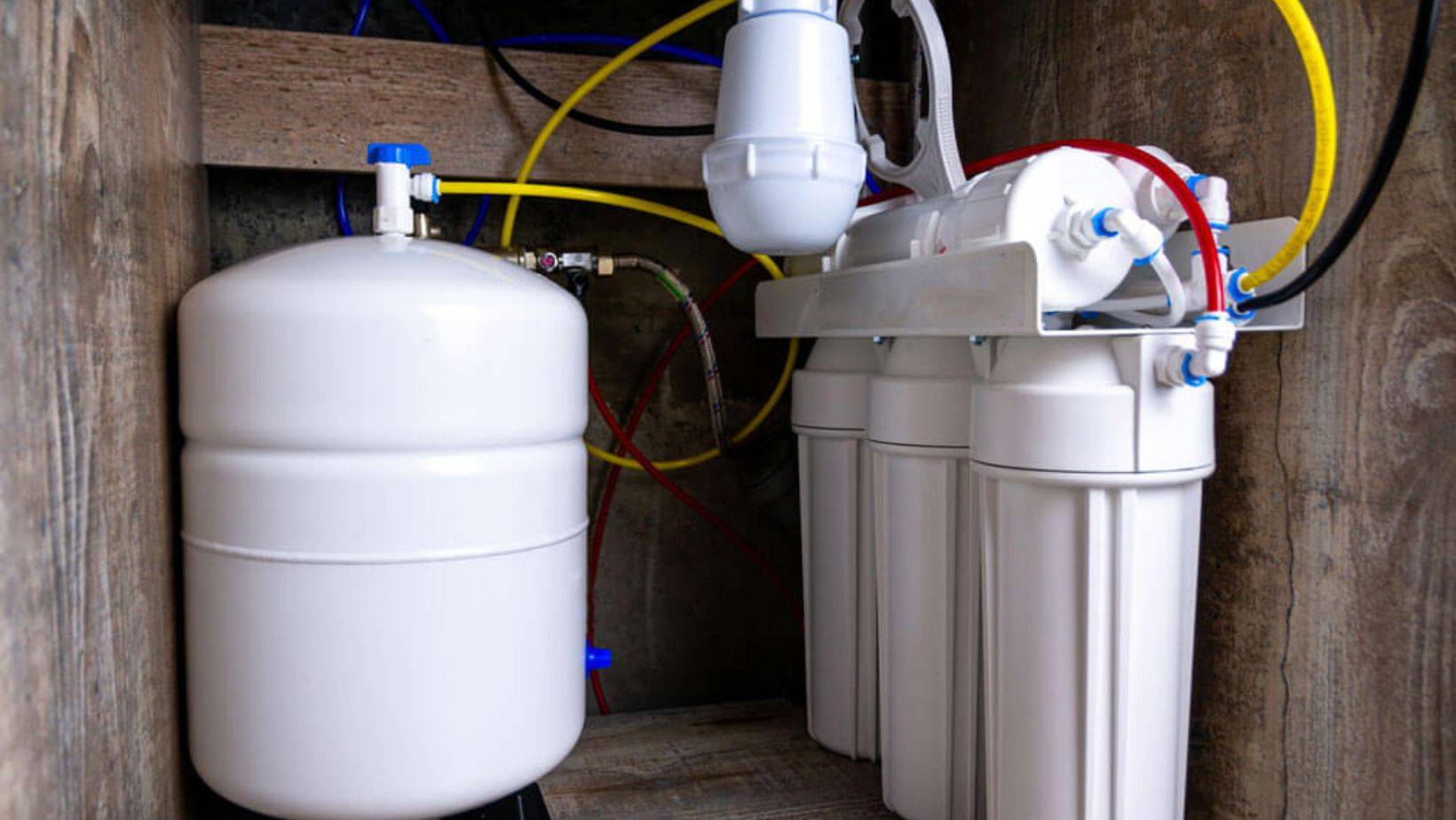
Water filtration
When it comes to the health and well-being of your family, ensuring access to clean and safe drinking water is paramount.

Top 10 Plumbing Tips For The Summer Season
Discover the Top 10 Plumbing Tips to Keep Your Summer Hassle-Free! Learn how to maintain your plumbing system during the warm season for a worry-free summer.
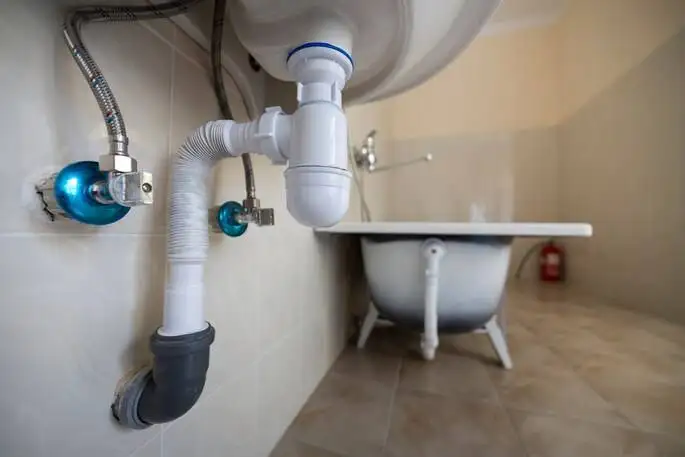
The Ultimate Guide to Ejector Pump in Basement: Everything You Need to Know
Discover how DrainGo provides expert advice on ejector pumps in residential basements, sewage ejector pump installation, and maintaining plumbing systems. Learn about sump pumps, septic tanks, and more.
Other Services
FAQs for Effective Floor Drain Maintenance
How often should I perform floor drain maintenance?
It’s recommended to inspect and clean floor drains every 3 to 6 months, depending on usage. Regular maintenance helps prevent clogs, sewer gases, and flooding. High-traffic areas like laundry rooms or basements may require more frequent cleaning to avoid plumbing problems.
What should I do if my floor drain is clogged and a plunger doesn’t work?
If a few strong pumps with a plunger fail to clear the clogged floor drain, try using a drain auger or plumber’s snake to reach deeper blockages. You can also flush the drain with boiling water or a baking soda and vinegar mixture. If the clog persists, it’s best to call a professional plumber to prevent further plumbing issues.
How can I prevent sewer odors from coming through my floor drains?
Installing a floor drain trap is an effective way to block sewer gases and odors. Additionally, keeping the cleanout plug secure and regularly pouring water down unused drains will maintain the water seal that prevents sewer gas leaks. These simple steps can help keep your home smelling fresh.
When should I call a professional plumber for floor drain maintenance?
If you notice recurring clogs, flooding, or persistent sewer odors, it’s time to call a professional plumber. Some plumbing problems, such as tree roots in the pipes, require specialized tools and expertise. Regular plumbing work from experienced professionals ensures your home’s drainage system stays in top condition, avoiding further damage and costly repairs.
